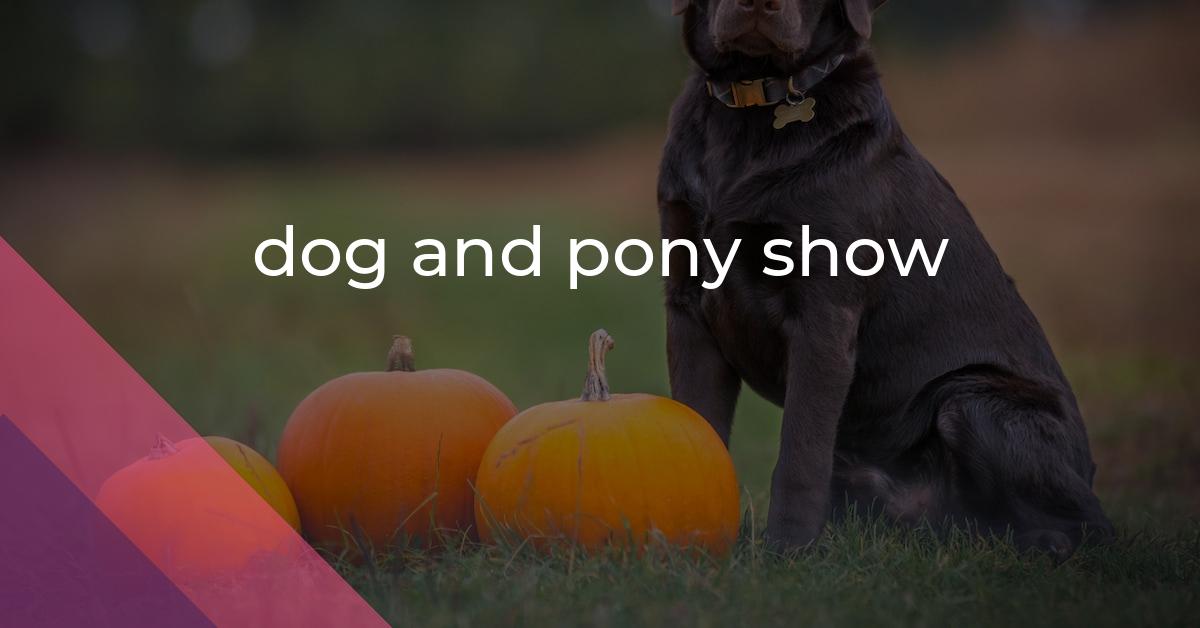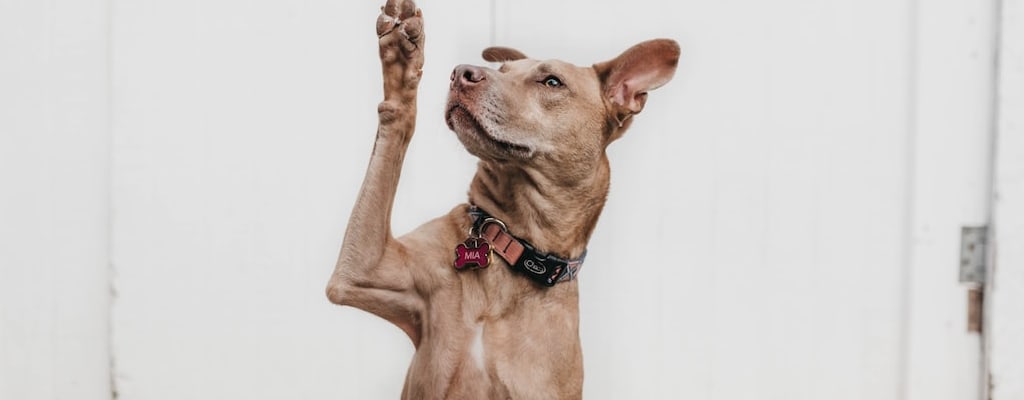dog and pony show: Idiom Meaning and Origin
What does ‘dog and pony show’ mean?
A "dog and pony show" is a slang term used to describe a flashy, elaborate presentation or performance that is intended to impress or entertain, but lacks substance or true value.

Idiom Explorer
A "dummy run" is an idiomatic expression referring to a trial or practice attempt, usually performed to test or rehearse something before the actual event or action takes place.
The idiom "dog's life" refers to a difficult and unpleasant existence, often characterized by hardship, struggle, or mistreatment.
The idiom "dog's chance" refers to having very little or no possibility of success or survival in a given situation.
The idiom "dog's breakfast" means a muddled or chaotic situation, typically used to describe something poorly done or disorganized.
The idiom "dog my cats" means that someone is surprised or shocked by something. It is often used to express disbelief or astonishment.
"Dog around" means to wander aimlessly, without a specific purpose or direction. It can also refer to procrastinating or wasting time instead of being productive.
The idiom "dog and cat" refers to a relationship or situation characterized by constant conflict or hostility, like cats and dogs are often portrayed to be. It emphasizes the idea of two entities or individuals that are fundamentally different and cannot get along peacefully.
An idiom used to describe something ordinary, typical, or unremarkable.
Enchanting Tales Revealed
The idiom "dog and pony show" originated in the United States and is commonly used to describe a spectacle or display that is intended to impress or entertain but lacks substance or importance. It is believed to have originated from the world of entertainment, specifically from the practice of showcasing trained dogs and ponies in traveling circuses or vaudeville shows.
In the early 20th century, traveling circuses and vaudeville shows were popular forms of entertainment in America. During these shows, trained dogs and ponies would perform various tricks to captivate the audience. These highly choreographed and meticulously rehearsed displays created visually impressive and entertaining spectacles.
Over time, the term "dog and pony show" started to be used metaphorically to describe any elaborate presentation or performance designed to create an impression or distract attention, rather than convey substantive information. It gained popularity in the business and political world, where it is often used to criticize events or meetings perceived as superficial or insincere.
The phrase "dog and pony show" is also used in the military, particularly in the United States, to describe an inspection or demonstration for high-ranking officials. In this context, it refers to a carefully staged performance put on by troops to impress the visiting officials and convey a false sense of readiness or capability.
In popular culture, the idiom has been widely used in books, movies, and television shows to convey the idea of a flashy but ultimately empty performance. It has become a metaphor for any situation in which appearances are valued more than substance.
While the exact origins of the idiom are not documented, it is clear that it emerged from the world of entertainment and gradually evolved to encompass a broader range of meanings. The phrase has become firmly embedded in the English language and continues to be used in a variety of contexts to describe presentations, performances, and events that prioritize spectacle over substance.
As with many idioms, the interpretation and usage of "dog and pony show" may vary depending on the context. However, the general consensus is that the phrase conveys a sense of superficiality and artifice, emphasizing the importance of substance over appearance.
The idiom "dog and pony show" is related to other idioms such as "song and dance," "all sizzle and no steak," and "cock-and-bull story." These idioms share a common theme of prioritizing appearances over substance.
The idiom "song and dance" refers to a lengthy and often exaggerated explanation or performance that is used to distract or deceive. It is similar to a "dog and pony show" in that both involve creating a spectacle or display to divert attention away from the lack of substance or importance.
"All sizzle and no steak" is an idiom used to describe something that appears impressive or exciting on the surface but is ultimately lacking in substance or quality. It is another way of expressing the idea of a flashy performance with no real substance, similar to a "dog and pony show."
A "cock-and-bull story" is a fanciful or implausible tale that is intended to deceive or mislead. While it may not involve a physical spectacle like a "dog and pony show," it shares the common theme of prioritizing appearances and entertainment value over substance and truth.
The idiom "dog and pony show" originated from the world of entertainment and refers to a spectacle or display that is intended to impress or entertain but lacks substance. It has been metaphorically applied to various contexts, including business, politics, and the military, to criticize events or performances that are perceived as superficial or insincere. The idiom is related to other idioms such as "song and dance," "all sizzle and no steak," and "cock-and-bull story," which share a common theme of prioritizing appearances over substance.
Example usage
Examples of how the idiom dog and pony show can be used in a sentence:
- The CEO put on a dog and pony show to impress the investors with flashy presentations and promises of large profits.
- Politicians often engage in a dog and pony show during election campaigns, making grand gestures and empty promises to sway voters.
- The marketing team organized a dog and pony show to showcase their new product, complete with live demonstrations and enthusiastic testimonials.
More "Performance" idioms



